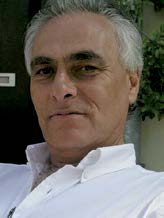European Russophobia and Europe’s Rejection of Peace: A Two-Century Failure
Europe has repeatedly rejected peace with Russia at moments when a negotiated settlement was available, and those rejections have proven profoundly self-defeating. Read more
 By James M. Dorsey
By James M. Dorsey
Based on remarks at a 19 December 2017 NUS Middle East Institute seminar
The Middle East being the Middle East, everything is interrelated. What happens in the region impacts Yemen and what happens in Yemen impacts the region. The crisis in Yemen, like many conflicts in the Middle East, did not originate with the power struggle between Saudi Arabia and Iran, but inevitably get sucked into it.
Yemen was a Saudi problem long before it took on the mantle of a Saudi-Iranian proxy war and it may be the conflict that is most important and most sensitive for the kingdom. It also may be the proxy war that comes to haunt Saudi Arabia the most. Beyond cross-border tribal relationships, Yemen, a devastated country where recovery and reconstruction is certain to be a slow process, is likely to have a next generation that will be deeply resentful of Saudi Arabia with all the political and security implications that go with that.
More immediately, two recent factors stick out that potentially have significant geopolitical consequences. First, the recent meeting between the crown princes of Saudi Arabia and the United Arab Emirates, Mohammed bin Salman and Mohammed bin Zayed, with leaders of Yemen’s Islamist Islah party in the wake of the killing of former Yemeni president Ali Abdullah Saleh. The presence of Mohammed bin Salman at the meeting was far less remarkable than that of Mohammed bin Zayed and it is not clear what it means. It is Mohammed bin Zayed rather than Mohammed bin Salman who is truly uncomfortable with any expression of political Islam and certainly with any link to the Muslim Brotherhood. Islah remains an Islamist party even if it announced in 2013 that it had cut its ties to the Brotherhood.
The article's full-text is available here.